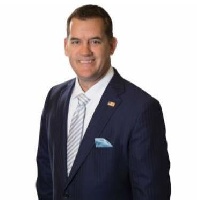 Lutz White Collar Crime Lawyers, Florida
Lutz White Collar Crime Lawyers, Florida
Sponsored Law Firm
-
 x
x

Click For More Info:
-
Law Office of Matthew D. Schultz
495 Grand Blvd. Suite 206 Miramar Beach, FL 32550» view mapAccident & Injury Law Over 25 Years of Experience
Mr. Schultz is an accomplished lawyer that has over twenty-five years of legal experience in accident & injury matters.
800-960-5971
Sponsored Lawyers
1-3 of 3 matches
White Collar Crime, Wills & Probate, Car Accident, Limited Liability Companies, Real Estate Other
Prior to forming the law office of Westchase Law, P.A. and Westchase Title, LLC in Tampa, Florida, C. Todd Marks attended the George Mason School of Law. While in law school, Mr. Marks graded on to the Law Review and served as the Symposium Editor. Mr. Marks practiced law in Virginia and Washington, D.C. Mr. Marks began his legal career in Washington, DC and McLean, Virginia with the law firm of Shaw Pittman, LLP where he practiced in the emerging companies and commercial real estate practice groups. In the meantime, Todd remained active in local and national political campaigns. Todd eventually worked for law firms Connolly, Bove, Lodge & Hutz in the commercial litigation and bankruptcy practice groups where he developed a general practice which included estate planning and other business law matters. His experience includes real estate closings and disputes, commercial leases, commercial litigation, creditors' rights in bankruptcy, corporate formation and transactions, estate planning, employment law, and family law. Mr. Marks is the proud father of two boys and a girl. Mr. Marks serves on the Board of the Westchase Charitable Foundation and has served on the Board of Church at the Bay.
(more)



 Matthew Schultz Saint Cloud, FL
Matthew Schultz Saint Cloud, FL Practice AreasExpertise
Practice AreasExpertise

